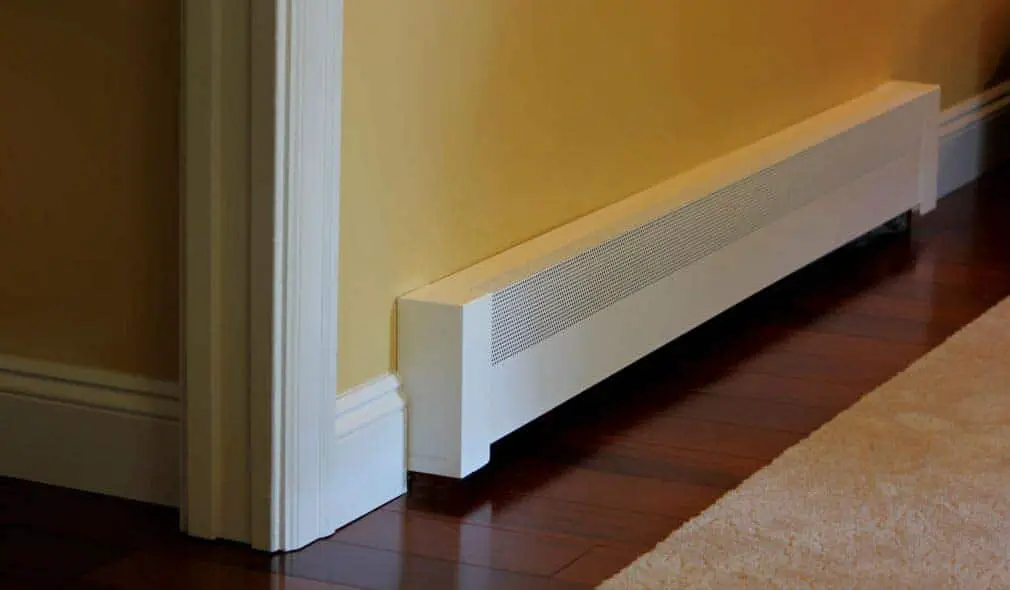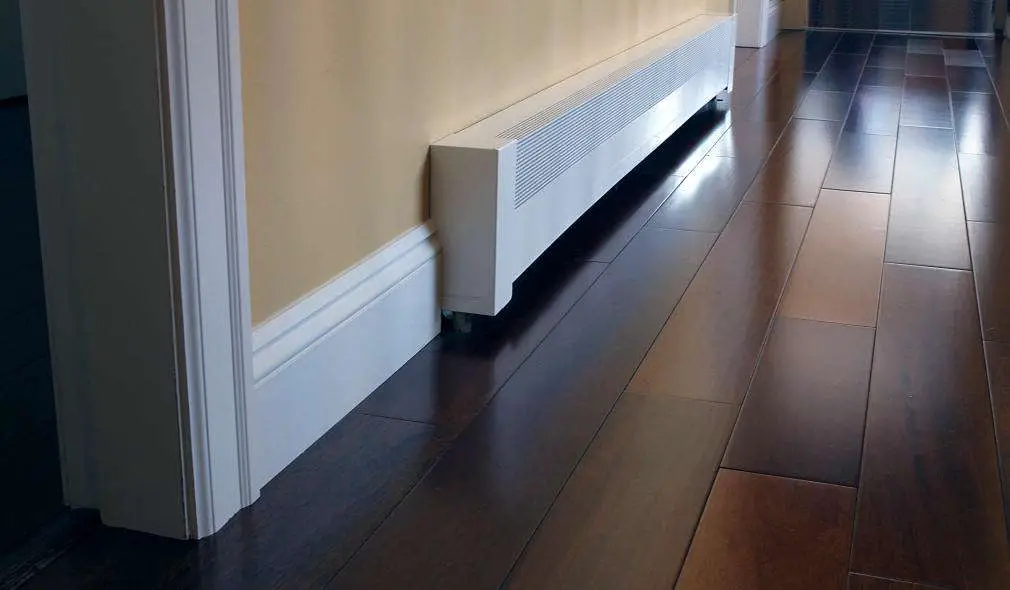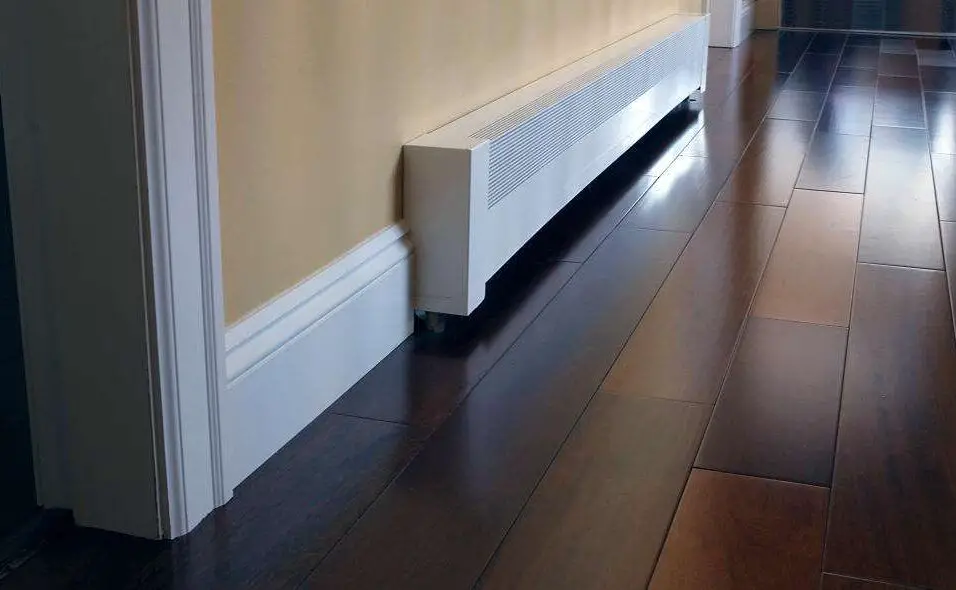Is Baseboard Heat Expensive
Introduction
Is Baseboard Heat Expensive: Gas baseboard heat gas uses natural gas or propane to generate heat. This type of heating system is typically more energy-efficient than electric baseboard heat, as gas is a cheaper fuel source compared to electricity. Gas baseboard heaters also tend to heat up a room more quickly, making them a good option for homes that require fast and consistent warmth.
There are some drawbacks to gas baseboard heat. One of the main concerns is safety, as gas-powered systems can pose a risk of carbon monoxide leaks if not properly maintained. It is important to have regular inspections and ensure that your gas baseboard heater is functioning correctly to prevent any potential hazards. Additionally, gas baseboard heat requires a gas line to be installed in your home, which can be costly and may not be feasible in all areas.
Electric baseboard heat, on the other hand, uses electricity to generate heat. This type of heating system is generally easier to install and does not require a gas line, making it a more convenient option for many homeowners. Electric baseboard heaters are also considered safer than gas heaters, as they do not produce any carbon monoxide or other harmful emissions.

How do I know if my baseboard heat is gas or electric?
Through the small window on the front of the heater, you should be able to see a blue flame glowing. Gas heating units use burners to produce heat. You can usually also hear the sound of the gas burner. Electric units do not have windows or make this noise.
If you are unsure whether your baseboard heat is gas or electric, there are a few ways to determine the type of heating system you have. By examining the physical characteristics of your baseboard heaters and checking for specific components, you can easily identify whether your baseboard heat is gas or electric.
Distinguishing Baseboard Heater Types: Electric vs. Gas
Another way to identify the type of baseboard heat you have is by checking for a pilot light. Gas baseboard heaters require a pilot light to ignite the gas and produce heat. This pilot light is usually located near the gas burner and can be seen when you remove the cover of the heater. If you find a small flame burning continuously, it indicates that your baseboard heat is gas-powered. On the other hand, electric baseboard heaters do not have a pilot light since they do not rely on gas for heat.
In addition to examining the physical characteristics of your baseboard heaters, you can also check your utility bills for further clues. Gas baseboard heaters typically use natural gas or propane as a fuel source, which will be reflected in your gas bill. If you notice a separate charge for gas usage, it is a strong indication that your baseboard heat is gas-powered. On the other hand, if your utility bills only include charges for electricity, it suggests that your baseboard heat is electric.
Is baseboard heating gas?
With baseboard heating, there’s no need for furnaces, ducts, or blowers. The unit creates heat from electricity, gas or water, and it slowly rises from the floor to the ceiling to warm the room.
No, baseboard heating is not gas. Baseboard heating is a type of heating system that uses electric resistance coils or hot water to heat a room. It is a popular choice for homeowners who want a cost-effective and efficient way to heat their homes. Unlike gas heating systems, baseboard heating does not rely on burning fuel to generate heat.
Baseboard heating works by using electric resistance coils or hot water to generate heat. In electric baseboard heating systems, electric resistance coils are installed inside the baseboard units. When electricity passes through these coils, they heat up and radiate heat into the room. This type of heating system is controlled by a thermostat, which allows homeowners to adjust the temperature to their desired level.
Hot Water Baseboard Heating: Boiler-Powered Comfort
Hot water baseboard heating systems, on the other hand, heat water in a boiler and move it through baseboard lines. The room gets warmer when hot water flows through pipes. This heating device is controlled by a thermostat, which lets people change the temperature.
There are several reasons why baseboard heating is useful. It’s easy to set up and needs less ductwork than central heating systems. This means that homes can afford to add or improve their heating systems. With baseboard heating, people can also heat only certain rooms when they need to. This saves money on energy and heating bills.
Even though it’s not gas, baseboard heating is stable and works well. Whether it’s hot water or electric resistance coils, baseboard heating makes a room feel warm and cozy. It is a popular way for people to heat their homes that is both efficient and affordable.
Is baseboard heating electric?
Electric baseboard heating systems — also known as electric resistance heating — is a form of zone heating that individually creates and controls the temperature in each room of your home. There are no furnaces, boilers, heating ducts, vents or blowers involved in distributing the heat.
Yes, baseboard heating is electric. Baseboard heating is a type of heating system that uses electric resistance to generate heat. It consists of long, narrow units that are installed along the baseboard of a room, hence the name. These units are typically made of metal and contain heating elements that warm up when electricity passes through them.
Baseboard heating is a popular choice for many homeowners because of its simplicity and efficiency. Unlike other heating systems that rely on a central furnace or boiler, baseboard heating operates independently in each room. This means that you can control the temperature of each room individually, allowing for greater comfort and energy savings.
Advantage of Silent Operation: Baseboard Heating’s Noise-Free Comfort
One of the main advantages of baseboard heating is its quiet operation. Unlike forced-air systems that can be noisy when the furnace or blower kicks on, baseboard heating operates silently. This makes it a great option for bedrooms, offices, and other areas where noise can be a concern.
Another benefit of baseboard heating is its relatively low installation and maintenance costs. Since baseboard heating does not require ductwork or a central heating unit, the installation process is typically straightforward and less expensive. Additionally, baseboard heating units are relatively easy to maintain, with most of the maintenance involving cleaning and checking for any signs of damage.
Baseboard heating is also known for its ability to provide consistent and even heat distribution. The units are designed to radiate heat from the bottom up, creating a gentle and comfortable warmth throughout the room. This can help eliminate cold spots and drafts, providing a more comfortable living environment.
Do baseboard heaters use gas or water?
Radiators that go with borders
Baseboard hydronic heating systems use a gas or oil-fired heater in the basement to heat water. Pipes bring warm water to the walls of rooms. Heat is sent around by radiation and convection.
Baseboard heaters don’t need water or gas. They heat with power instead. People in homes and businesses use these heaters because they work well and efficiently. As opposed to gas or water heaters, baseboard heaters are powered by electric resistance. A metal heating element inside the heater is warmed by an electric current. When hot, the element sends heat into the room to keep it at a comfortable level.
Baseboard heaters are useful because they are easy to set up. The name comes from the fact that they can be fixed on the wall or the baseboard. This gives you a lot of options for placement and spreads the heat evenly throughout the room.
One more benefit of baseboard heaters is that they can be controlled separately. You can change the temperature of each room separately by controlling each unit separately. This feature is helpful for larger buildings or homes with more than one person because it lets everyone control the temperature. There are also baseboard heaters that don’t make noise. Baseboard heaters are quiet, which makes them a peaceful and relaxing way to heat your home.
How is baseboard heating powered?
Baseboard heating works through convection. As cold air falls from the window, it enters the baseboard unit through a vent. Within the baseboard, the air is warmed by a series of metal fins that have been heated through electricity.
Baseboard heating is a popular heating system used in many homes and buildings. It is a type of heating system that is powered by electricity. Unlike other heating systems that rely on a central furnace or boiler, baseboard heating uses individual units that are installed along the baseboards of a room. These units are connected to an electrical power source and generate heat through a process called convection.
Convection is the transfer of heat through the movement of air or fluid. In the case of baseboard heating, the units are designed to heat the air in the room by drawing in cool air from the bottom and releasing warm air from the top. This creates a natural circulation of air that helps to evenly distribute heat throughout the room.
Baseboard heating units are typically made of metal and contain heating elements, such as electric resistance coils or fins. When electricity is supplied to the unit, the heating elements heat up and transfer the heat to the surrounding air. The warm air then rises and circulates throughout the room, providing a comfortable and consistent temperature.
Is baseboard heat typically fueled by gas or electricity?
Baseboard heat is typically fueled by electricity. Unlike other heating systems that rely on gas or oil, baseboard heaters use electric energy to generate heat. These heaters consist of long, narrow units that are installed along the baseboard of a room. When electricity flows through the heating element inside the unit, it heats up and radiates warmth into the room.
One of the advantages of using electric baseboard heat is that it is easy to install and does not require any additional fuel sources. This makes it a convenient option for homeowners who do not have access to gas lines or prefer not to use gas as a heating source. Additionally, electric baseboard heaters are known for their quiet operation and individual temperature control, allowing users to adjust the heat in each room according to their preferences.
Does baseboard heat rely on gas or electric energy?
Baseboard heat can rely on either gas or electric energy, depending on the specific system. Gas-powered baseboard heaters use natural gas or propane as their energy source. These heaters have a gas burner that heats up the air, which is then circulated through the baseboard unit to warm the room. Gas-powered baseboard heaters are often more energy-efficient and cost-effective compared to electric ones, especially in areas where natural gas is readily available.
On the other hand, electric-powered baseboard heaters use electricity as their energy source. These heaters have electric heating elements that heat up when an electric current passes through them. The heated elements then transfer the heat to the surrounding air, which is then distributed throughout the room. Electric baseboard heaters are generally easier to install and require less maintenance compared to gas-powered ones. However, they can be more expensive to operate, especially in areas with high electricity rates.
What is the primary energy source for baseboard heating?
The primary energy source for baseboard heating is typically electricity. Baseboard heaters are electric heating devices that are installed along the baseboard of a room. They work by using electric resistance to generate heat, which is then radiated into the room. This makes them an efficient and cost-effective option for heating individual rooms or small spaces.
Electricity is a clean and readily available energy source, making it a popular choice for baseboard heating. It is also easy to control and can be adjusted to meet specific heating needs. Additionally, electric baseboard heaters do not require any fuel storage or combustion, which eliminates the need for a chimney or venting system.

Conclusion
Baseboard heat can be either gas or electric, depending on the specific system installed in a home or building. Gas baseboard heat relies on a natural gas supply to generate heat, while electric baseboard heat uses electricity to produce warmth. Both options have their advantages and disadvantages, and the choice between the two ultimately depends on factors such as cost, efficiency, and personal preference.
Gas baseboard heat offers several benefits. It tends to be more cost-effective than electric baseboard heat, as natural gas is often cheaper than electricity. Gas systems also provide a more consistent and even heat distribution, resulting in a more comfortable living environment. Additionally, gas baseboard heat is not reliant on electricity, making it a reliable option during power outages. However, gas systems require a gas supply and proper ventilation, which may involve additional installation costs and maintenance.
On the other hand, electric baseboard heat has its own advantages. Electric systems are generally easier and less expensive to install, as they do not require a gas supply or ventilation. They also offer more precise temperature control, allowing for individual room heating adjustments. Electric baseboard heat is also considered safer, as there is no risk of gas leaks or carbon monoxide poisoning. However, electric systems can be more expensive to operate, especially in areas with high electricity rates.
Ultimately, the decision between gas and electric baseboard heat depends on the specific needs and circumstances of the homeowner or building owner. Factors such as budget, energy efficiency goals, and the availability of gas supply should all be taken into consideration. Consulting with a professional HVAC technician can help determine the most suitable option for a particular space. Whether gas or electric, baseboard heat provides an effective and reliable heating solution for many homes and buildings.








